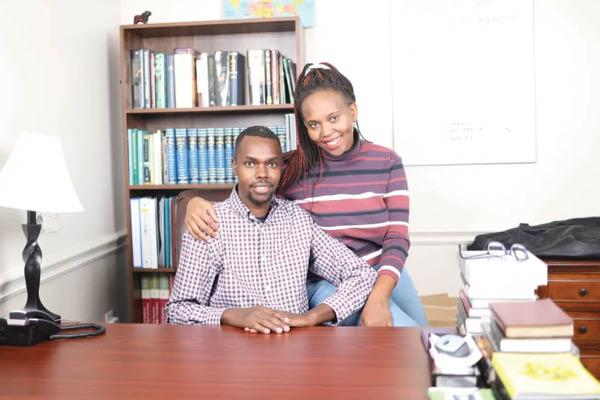
Community engagement is a pillar of the mission of Duke Head and Neck Surgery & Communication Sciences (HNS&CS), and collaborative community health partnerships are a core component of our efforts.
In December 2022, Duke HNS&CS and Duke Raleigh Hospital were invited to participate in the inaugural Health and Dignity for All Fair, hosted by North Raleigh International Baptist Church (NRIBC) and Pastor Patrick Warutere. Led by Dr. Trinitia Cannon, a team of healthcare providers, medical students, and residents provided head and neck cancer screenings at the event. The collaboration was so positive that the teams decided to continue exploring opportunities to work together in the community. This ultimately led to the development of Project CHECKERS: Community Head and Neck Cancer Knowledge, Engagement, Research, and Screening, a collaborative partnership between HNS&CS and NRIBC, currently funded by Duke Cancer Institute. None of this would have been possible without the leadership of NRIBC’s visionary pastor, Patrick Warutere.
Patrick and his wife Pauline lead NRIBC. The couple, along with their two sons and daughter, moved to the United States from Kenya in 2017 to continue their education at Southeastern Baptist Theological Seminary in Wake Forest, North Carolina, just outside of Raleigh. In Raleigh, they found themselves among a diverse community of immigrants from the Middle East and Central and East Africa. As they immersed themselves in this diverse community of friends, they began to understand their distinct cultures, needs, and opportunities. Many community members had unmet medical needs. As a result, Patrick and Pauline founded NRIBC, in part to help address those needs.
In planning the December 2022 screening event, Patrick felt a special connection with Dr. Cannon and Leda Scearce, a Duke speech-language pathologist and Director of Community Engagement at Duke HNS&CS.
“Our community is composed of immigrants, and for many, Raleigh and Duke Hospital are all new experiences,” Patrick said. “Duke HNS&CS provides care with a high degree of cultural sensitivity. This is why our connection has become so endearing. Their cultural sensitivity encourages our international community to attend educational and screening events without hesitation.”
Thanks to the collaboration, people in the community attend health screening events more frequently. And those who attend these events learn more about the care Duke provides, which providers should be seen, and how to schedule an appointment.
Many members of the community have expressed gratitude for the access to medical care and the genuine effort from Duke to understand them and address specific medical needs. Some also find empowerment and confidence knowing that they are working with Duke. If a medical need arises, they know where to go.
“Our community is now more aware of what causes head and neck cancer and how to seek care,” Patrick said.
Challenges remain for Duke HNS&CS when it comes to reaching more members of these communities. Almost everyone who is part of this community speaks in their native language and doesn’t understand English completely. And not everyone has the means to come to a screening event—one reason why Duke HNS&CS is looking at ways to bring screening and education to their homes.
Patrick sees the partnership as a positive one and encourages other community leaders to build similar relationships.
“My advice: First, build relationships based on trust. Second, work together with communities to tailor services based on the unique medical needs of the community. And third, include community members in the planning and implementation process. All three of these will enhance the effectiveness of a similar program,” he says.